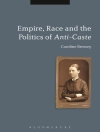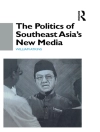During the last two centuries, ethnolinguistic nationalism has been the norm of nation building and state building in Central Europe. The number of recognized Slavic languages (in line with the normative political formula of language = nation = state) gradually tallied with the number of the Slavic nation-states, especially after the breakups of Czechoslovakia, the Soviet Union and Yugoslavia. But in the current age of borderless cyberspace, regional and minority Slavic languages are freely standardized and used, even when state authorities disapprove. As a result, since the turn of the 19th century, the number of Slavic languages has varied widely, from a single Slavic language to as many as 40.Through the story of Slavic languages, this timely book illustrates that decisions on what counts as a language are neither permanent nor stable, arguing that the politics of language is the politics in Central Europe. The monograph will prove to be an essential resource for scholars of linguistics and politics in Central Europe.
Tomasz Kamusella
Politics and the Slavic Languages [PDF ebook]
Politics and the Slavic Languages [PDF ebook]
Buy this ebook and get 1 more FREE!
Language English ● Format PDF ● Pages 350 ● ISBN 9781000395952 ● Publisher Taylor and Francis ● Published 2021 ● Downloadable 3 times ● Currency EUR ● ID 7826455 ● Copy protection Adobe DRM
Requires a DRM capable ebook reader












